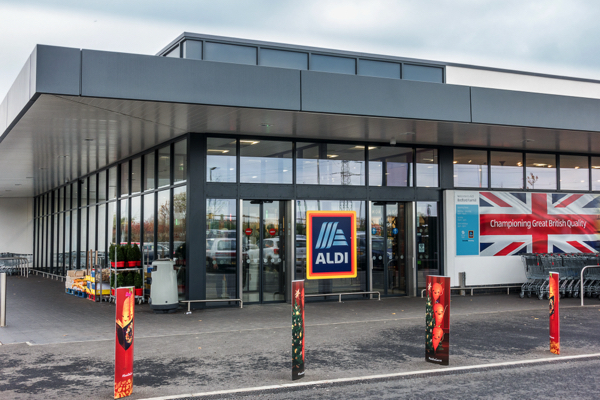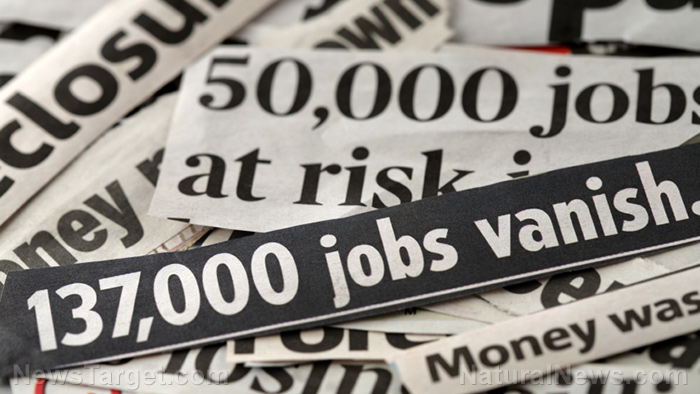 Parler
Parler Gab
Gab
- Aldi's recall of its Dairyfine Crispy Choc Um's across the U.K. wasn't about taste – it was about safety. The chocolate treat may contain undeclared peanuts, a potentially fatal risk for allergy sufferers.
- Food recalls are surging worldwide and most aren't due to contamination but to labeling mistakes – tiny errors with huge consequences.
- A 2023 Food Control study found over half of U.K. food recalls from 2016 to 2021 were caused by undeclared allergens, not bacteria or spoilage.
- Aldi's low-cost, private-label model means recalls hit both its reputation and its promise of affordability without compromise.
- Staying informed, checking labels and sharing alerts make everyday shoppers the final line of defense in keeping food safe.
The hidden hazard: When a label can lie
A Food Control study published in 2023 examined more than 1,000 U.K. food recalls from 2016 to 2021. The finding: 57.6 percent were due to undeclared allergens – a bigger culprit than bacteria, mold or foreign materials (metal, glass, plastic, wood, etc.) combined. Milk ranked as the most common allergen, followed by gluten, nuts, soy and eggs. For those with allergies, even a trace of the wrong ingredient can be catastrophic. The researchers found that most of these recalls come down to simple human mistakes:- An allergen missing from the ingredient list
- A product packaged in the wrong wrapper
- Cross-contamination in the factory
Aldi's balancing act: Low prices, high stakes
Aldi's reputation rests on a rare promise: quality without frills. The German-founded retailer built global loyalty by stripping away everything but essentials – smaller stores, minimal staff, private-label products and famously low prices. That model works brilliantly until something goes wrong. Because Aldi owns most of its brands outright, it also carried full accountability when one misfires. A labeling error isn't a supplier's embarrassment – it's Aldi's. Many product recalls stem from supplier errors or manufacturing mishaps, yet Aldi often ends up facing the public scrutiny. The retailer's streamlined operations and expansive scale – long considered its greatest advantages – also leave it particularly vulnerable when problems arise. Still, Aldi's crisis response is often swift and transparent. The company runs a real-time recall website, coordinates directly with allergy organizations and posts warnings at store checkouts. These steps help contain damage and, as experts note, likely prevent hundreds of people from getting sick each year. But reputation is delicate. A YouGov poll found that nearly one in three shoppers lost trust in a brand after a recall, no matter how responsibly it's handled. For discount chains like Aldi – where loyalty depends on consistent reliability – recalls can leave a longer shadow than for premium competitors. These mistakes don't just cost money. They chip away at the public's quiet faith in an invisible system meant to protect them As BrightU.AI's Enoch notes: "On its surface. Aldi's recall was just a batch of chocolates pulled from shelves. But in reality, it's a snapshot of a global food system that's both astonishingly advanced and surprisingly fragile." Watch this video about allergens. This video is from the Daily Videos channel on Brighteon.com. Sources include: DailyMail.co.uk FoodNavigator.com ScienceDirect.com TheGuardian.com TheDailyMeal.com BrightU.ai Brighteon.comA farm’s final stand: The day the ostriches fell
By Willow Tohi // Share
India’s oil dilemma: Sanctions force shift away from Russian crude
By Belle Carter // Share
Hidden salt in your diet: How to cut back without sacrificing flavor
By Patrick Lewis // Share
Potassium metabisulfite: The hidden preservative in processed foods
By Laura Harris // Share
An ominous warning from the epicenter of AI
By Willow Tohi // Share
Almonds: The ancient supernut powering modern wellness
By Laura Harris // Share
Governments continue to obscure COVID-19 vaccine data amid rising concerns over excess deaths
By patricklewis // Share
Tech giant Microsoft backs EXTINCTION with its support of carbon capture programs
By ramontomeydw // Share
Germany to resume arms exports to Israel despite repeated ceasefire violations
By isabelle // Share










